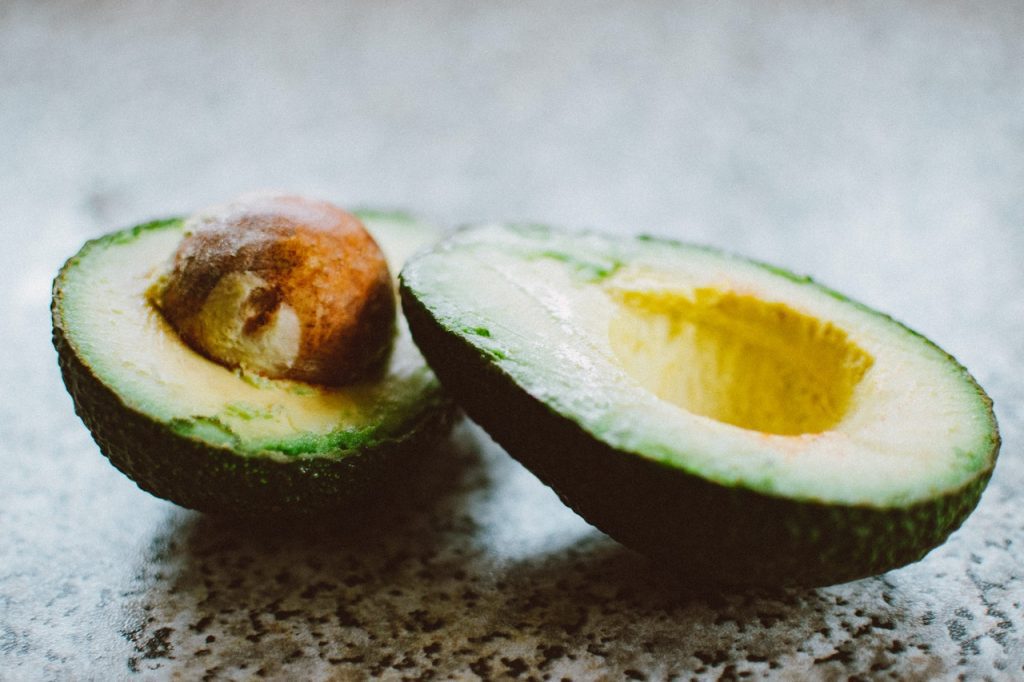
The best online fitness resource you'll ever need. We filter out the BS to ensure you meet your health and fitness goals!

The best online fitness resource you'll ever need. We filter out the BS to ensure you meet your health and fitness goals!

The ketogenic diet is an increasingly popular dietary protocol. Recent years have seen many of its various benefits proven. Myriad people utilise it for weight loss, hypertrophy, and improved health and wellbeing; those who turn to it often claim it as some form of panacea.
However, this isn’t the full picture. Though it is perfectly safe for most people to follow, the ketogenic diet may come with some unpleasant side effects. This is especially true at the beginning. It allows you fewer than 20g of carbohydrates per day (where most people need around 2-300), drawing the majority of its calories from fat, instead.
This extreme diet structure can result in people experiencing the ‘keto flu’.
Keto flu is a group of common symptoms that make people feel- as the name suggests- as though they have the flu. Lethargy, muscle aches and depleted immune function combine with a lack of mental clarity and a tendency for disorientation to make you feel incredibly rough.
We’ll give you a brief rundown of the keto flu below, so that you know what to look out for (though we have previously gone over keto flu at length- ARTICLE LINK HERE). Then we will focus on what you can do about it if you experience it, asking what common supplements you can take to overcome it.
The keto flu is a collection of symptoms that many people experience when undertaking a ketogenic dietary protocol. It is most common in the early stages, as the body adapts to ketosis, after which its use of ketones for energy should allay the worst symptoms.
Until then, withdrawal from carbohydrate consumption will feel pretty rough.
Reducing your body’s reserves and supply of glucose forces it to use fat, turning it into these ketones, through ketosis. Ketones are a by-product of the breakdown of fat, and their use often brings about a great deal of mental clarity and a boost to perception of energy levels and athletic performance.
Sticking through the keto flu can therefore be worth it in the long run. You can expect your body to take 1-3 weeks to adapt to ketosis, after which the major symptoms will pass. Until then, you may feel as though you have the flu.
This withdrawal can feel horrible, as tiredness and lethargy kick in and mental fortitude and clarity crumble. Some people won’t experience it at all: their bodies will transition into ketosis easily, without any of the symptoms manifesting. Others will be pretty hard by it, with symptoms coming on in the first few days of reduced carb intake, or possibly even returning periodically throughout the keto diet.
Both symptoms and their severity can vary from person to person. However, the most common indicators and side effects of the keto flu include:
If you’ve just begun a ketogenic diet and you experience any of these, you have keto flu! Don’t worry too much: though it will be unpleasant in the short-term, it should only be temporary. If your symptoms persist for more than a few weeks, you should contact a healthcare professional. Otherwise, it’s just a case of riding it out.
However, we needn’t be quite so fatalistic. There are some things you can do to allay or even avoid the worst side effects of keto adaptation. Chief among strategies for coping with keto flu is the artful use of supplementation: if you’re considering going onto a keto dietary protocol, supplements are something of a must.
Below, we’ve listed the top 5 supplements you should be looking at. Individually and collectively, they should make the transition into ketosis easier, more pleasant and, ultimately, more efficient.

These are all readily available and widely consumed: the increasing popularity in ketogenic diets in recent years has caused the market to boom with supplements to help reduce keto flu and streamline the transition into ketosis.
It’s a good idea to continue with many- if not all- of them long-term, even after the first few weeks have passed and you’re out of the keto flu danger zone. The keto diet is notoriously restrictive, and it can be hard to take in everything you need without supplementation: the nutrients included below will be a great boon to anybody looking to run ketosis in as healthy a manner as possible.
Here are the top supplements to take on a keto diet:
Of course, on a diet that places so much emphasis on fat, fatty supplements should feature quite prominently. We’ve identified three that are really worth looking into.
Medium-chain triglycerides (MCTs) are an incredibly popular fat resource for those looking to hit ketosis. They are amongst the most common, most effective supplements going for the ketogenic diet.
Long-chain triglycerides (LCTs) are the fat forms most commonly found in foods. However, your body metabolises MCTs far more efficiently: they are broken down quickly in your liver, from where they enter your bloodstream. They are a great source of energy for your muscles and brain.
Coconut oil is a good source of MCTs. Nearly a fifth of its fatty acids are MCTs. However, taking MCT oil itself gives a concentrated dose, as the MCTs in its constitution will have been isolated by the manufacturer. Taking them will boost the overall fat content of your diet (which can be hard to keep high enough for ketosis to work properly.)
MCT oil has also been shown to promote weight loss in and of itself, and will go a long way to improving feelings of satiation after eating.
Mix small doses (5ml or so) with shakes and smoothies or use it instead of milk to thicken up your morning coffee. It will stop the sugar cravings associated with keto flu, whilst giving you an energy boost to reduce lethargic symptoms.
In addition, both omega 3 fatty acid supplements and exogenous ketones work very well for those seeking to hit ketosis without going through keto flu.
Omega 3 supplements such as fish oil will be rich in the fatty acids eicosapentaenoic acid (EPA) and docosahexaenoic acid (DHA). Both of these fatty acids have many health benefits, some of which are very pertinent to overcoming keto flu. EPA and DHA have been found to reduce inflammation, lower heart disease risk and prevent mental decline. They also help those on a keto diet to maintain a healthy ratio between omega-3 and omega-6 fatty acids.
Keto-friendly foods such as salmon, sardines and anchovies are also very good sources of omega-3.
Meanwhile, exogenous ketone supplements may help to raise ketone levels. As the main source of energy on a keto diet, ketones are incredibly important: raising their level will help to overcome the fatigue and sluggishness associated with keto flu.
Magnesium is an essential mineral. It boosts energy levels, reduces feelings of fatigue, helps to regulate blood sugar levels and supports your immune system. Ketogenic diets stand to gain a lot from magnesium supplementation: they both exhibit many of the issues that can be aided by increased magnesium intake and have a tendency to bring about magnesium deficiency.
Many foods that supply typical diets with magnesium are untenable on keto diets, due to their high carb contents. These include many types of fruit and beans.
Taking magnesium supplements is therefore a very good idea if you’re following a keto diet, especially if you fall victim to any of the symptoms of keto flu. Doing so can help reduce muscle cramps, difficulty sleeping and irritability. These are all obviously common symptoms of keto flu.
Also try to include as many magnesium-rich, keto-friendly foods as you can, especially in the early stages of your keto diet. These include:
Having adequate levels of vitamin D in your diet is crucial to many aspects of your health and wellness. It is important for such crucial bodily functions as:
There are not too many foods that readily supply adequate amounts of vitamin D, and any diet as strict and unvaried as a keto diet will be worse hit still. Immune function is often one of the worst victims of keto flu, and overall inflammation is often exacerbated in the early stages of ketosis, so vitamin D will be helpful in overcoming those flu-like symptoms.
We’ve dealt so far with some of the lethargy, mental fog and immune problems associated with keto flu. Part of the issue is also digestive, however, with many people experiencing upset stomachs, constipation and/or diarrhoea over the first few weeks of following a keto diet.
This due in large part to the lack of fibre inherent to a keto diet, alongside the large amounts of fat that are eaten on in. The increased protein intake that many people go through on the keto diet can cause similar gastrointestinal discomfort, including diarrhoea, nausea and bloating.
If you are suffering from this- or if you want to avoid it- digestive enzymes are a good bet: a digestive enzyme blend that contains enzymes that break down fats and proteins may help improve digestion and allay some of these side effects.
In addition, many people run ketogenic diets in tandem with strict exercise and training regimes. The delayed onset of muscle soreness (DOMS) associated with post-training recovery can worsen symptoms of lethargy. Proteolytic enzymes- enzymes that help break down and digest protein- have been shown to improve protein uptake and reduce severity and incidents of DOMS

Dehydration is incredibly common for those who are suddenly cutting their carb intake down as low as the ketogenic diet requires: water loss from the body is common, and indeed will form much of the initial weight loss experienced.
Levels of sodium, potassium and magnesium all drop and need to be replaced. If not, symptoms of the keto flu including muscle cramps, fatigue and headaches will be exacerbated (or will present themselves where they could otherwise be avoided.) Adding minerals is therefore key: electrolytes are very important.
This will be especially true of anybody following an athletically intense lifestyle, as they generally sweat more, meaning more fluid loss, even as their bodies demand so much more of them.
Adding sodium through the diet is a good idea. Simply salt your food a little more than you usually would. In addition, increase your intake of keto-friendly foods that are rich in potassium and magnesium, including:
Electrolyte supplements- either soluble pills or drinks- are also widely available. Most athletes will already be relatively experienced with them. They will typically contain a healthy mixture of sodium, potassium and magnesium.
These are five of the best kinds of supplements money can buy if you’re looking at taking on a ketogenic diet. Though nothing can quite beat getting your diet right and properly balancing your macronutrient intake, supplements like this can make the process far more comfortable and efficient: ultimately, they will go a long way to reducing the flu like symptoms often experienced by those going into ketosis.